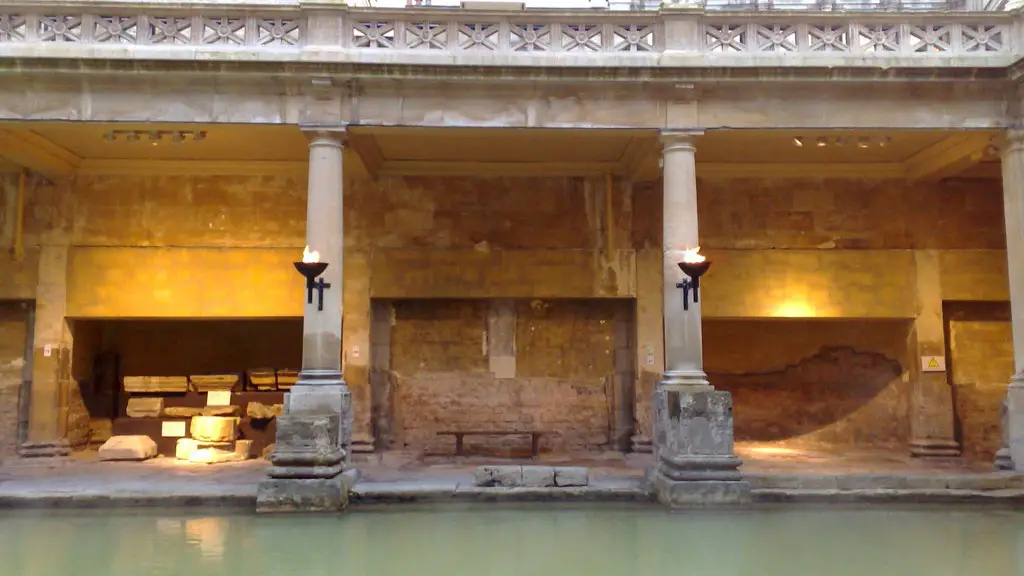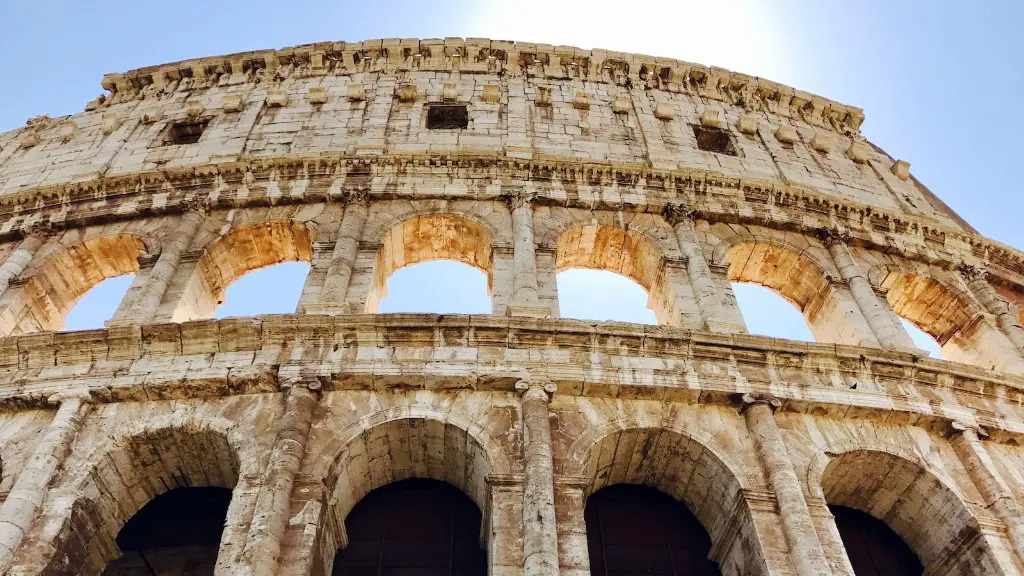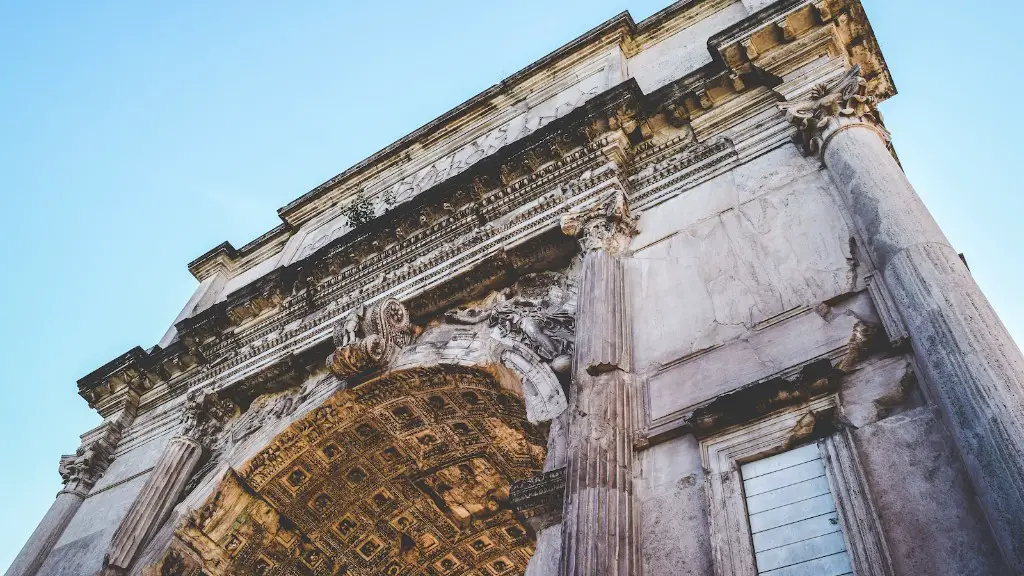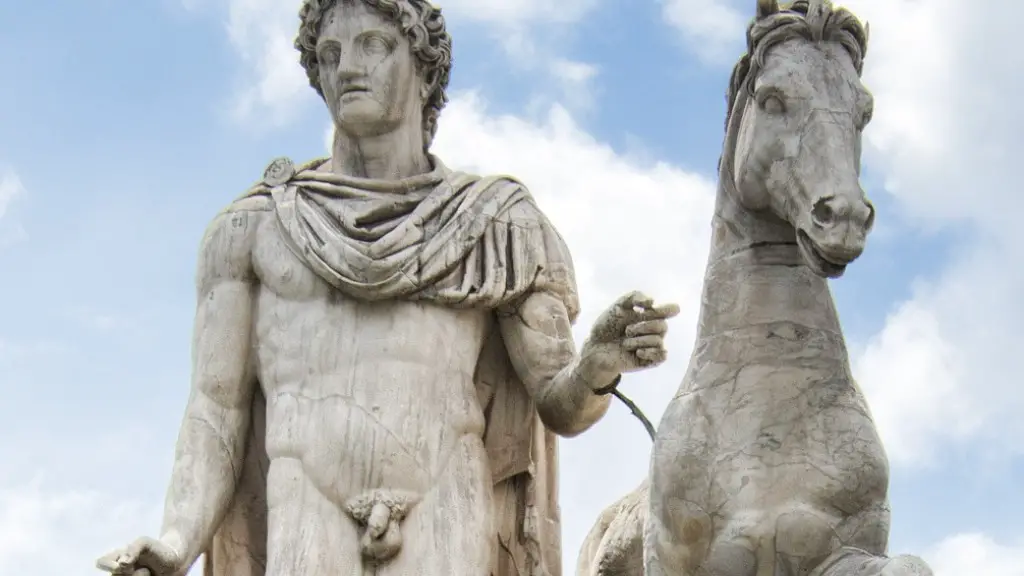Throughout history, farming has been essential to the survival of mankind. In ancient Rome, farming was a major part of life for many citizens, and it played a major role in the economy and culture of the time period. Although the practices were more primitive than modern farming, it was a way of life for many Romans. In this article, we will take a look at what farming was like in ancient Rome and how it helped shape the world.
Farmers in ancient Rome worked the land much like we still do today. They tilled the soil and planted crops, such as wheat and other cereals, to produce food for the people. They also bred livestock in order to provide milk, cheese and other products. Some farms were even specialized to produce foods such as olives, grapes and figs, as well as to cultivate plants used for medicinal purposes.
In order to make the most of their lands, farmers practiced the principle of crop rotation. This allowed them to make sure their land did not get overworked and produced a higher yield. They also used irrigation systems, such as aqueducts, to ensure their fields and crops were able to receive regular water. This allowed them to grow a wide variety of plants and produced a richer variety of food.
The Romans were also known for their advanced farming techniques. They were able to use manures and compost to help fertilize the land, and they used draught animals, such as horses and oxen, to do the heavy lifting in the fields. They also used a variety of tools such as sickles, hoes, shovels and plows to help with their agricultural tasks.
Economic Impact
Farming was an important part of the Roman economy. The riches from the countryside helped to fund the cities and provide many of the raw materials needed for the manufacture of goods. Agricolae, or farmers, were respected members of society and had a great deal of influence. This is because the majority of the population was completely reliant on farmers for food and other basic necessities.
Farms were owned by either the state or individuals, and those who owned them gained both wealth and power. Large landowners, or latifundiarii, were able to amass greater wealth than those who farmed on a smaller scale. This led to tension between the rich and poor, and paved the way for social unrest.
The Romans also understood the need to conserve the land and practiced various methods to ensure its maintenance. Techniques such as crop rotation and field fallowing were used to help replenish the soil and promote healthy growth. In some cases, terrace farming was used to maximize the production of the land, and aided in the prevention of soil erosion.
Social Impact
Farming in ancient Rome was a communal activity. It was often seen as a cooperative effort amongst family and friends, as they would pool their resources and share the workload. They also shared important information, such as which crops worked best in certain areas and what sort of animals to breed, in order to maximize production.
As well as providing food, farming also played an important role in Roman religion and culture. Certain festivals, such as the Festival of Floralia, were celebrated to honour the goddess of flowers and crops, Flora. It was also a time to give thanks for the previous year’s crops and to ask for the favour of a successful harvest.
Because of its importance, farming was honoured by the Romans, who held the work of farmers in high esteem. Those who worked the land were often revered for their hardworking lives, as well as their dedication to producing the food that sustained the population.
Technological Impact
Although their technology was more primitive than ours today, the Romans were still quite advanced. They developed various tools and technologies to help with their farming, including the use of slaves to work the fields and the invention of the water wheel to help with irrigation. They also developed elaborate systems for crop rotation and the use of manures and compost to improve the quality of the soil.
What is most fascinating about the technological advancements of the time is that they were also able to breed larger and more productive animals. Through selective breeding, they were able to produce animals that had more meat and milk, and were larger and stronger than their predecessors.
Perhaps the most impressive achievement was their organization of the farm laborers. Through efficient job allocation, the Romans were able to maximize their output and ensure that their crops were delivered in a timely manner. This allowed them to stay ahead of their competitors, who often lacked the same organizational capabilities.
Marketplace Impact
The Roman marketplace was the hub of the ancient world, and farming played an important role in the success of the market. As the population grew, so did the need for food. This created a demand for agricultural products, which spurred a growth in trade and commerce. This, in turn, helped to bring wealth and prosperity to the Roman Empire.
The growth in trade was also aided by the development of roads and shipping routes, which allowed farmers to bring their produce to the cities more easily. This made the Roman markets more accessible, which helped to expand their reach and increase the amount of goods exchanged.
Farmers were able to take advantage of the large market and sell their produce at a higher price. This often allowed them to build up a sizable fortune and helped to create a more equitable economic landscape. This is one of the reasons why trade in ancient Rome was so successful, and why it formed the basis of the Roman economy.
Environmental Impact
In addition to its economic and social benefits, farming in ancient Rome also had an impact on the environment. As the population grew, so did the need for land to be used for agriculture. This led to deforestation and soil erosion, as well as the depletion of animal and plant species.
The Romans also made use of advanced irrigation systems, such as aqueducts, to bring water to their crops. This allowed them to maximize their output, but also put a strain on the nearby rivers and streams. It is estimated that these aqueducts were responsible for the depletion of entire river systems and had a lasting effect on the environment.
Overall, the impact farming had on the environment was significant and long-lasting. Since the Romans were the first to make use of advanced agricultural techniques, the effects of their actions are still visible today in some parts of the world.
Political Impact
Farming was also a major influence in politics in ancient Rome. For starters, the wealth that farming generated was a major factor in allowing the cities to expand and grow. This allowed the cities to become more powerful and enabled the growth of the Roman Empire.
The agricultural economy also had an effect on taxation. The wealthy landowners were able to pay more in taxes and, as a result, held more political power. The poorer farmers, on the other hand, were often forced to take out loans in order to pay their taxes and were often crippled by the debt. This created tension between different social classes and contributed to the eventual downfall of the Roman Empire.
Farming also played an important role in the politics of the day by affecting the lives of common people. The regular supply of food it provided was essential for survival, and it helped to create a sense of stability and security amongst the population. Politicians also used farming to their advantage and often promised better conditions for farmers or offered food at reduced prices to enlist their support.
Conclusion
Farming was an essential part of life in ancient Rome and it had a profound impact on the people, economy and politics of the time. Farmers were honoured and respected for their hard work and commitment to the land, and their efforts helped to feed the population and build the Roman Empire. Their influence continues to this day, and their knowledge has helped shape the way we farm today.





